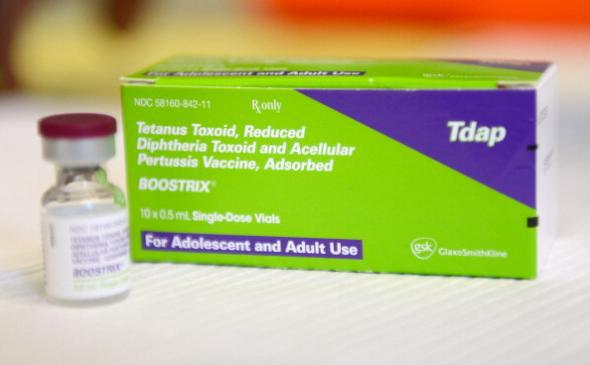California is in the grips of its worst whooping cough epidemic since the 1940s and numbers indicate that Latino babies are bearing the brunt of the outbreak, according to NPR. Almost 10,000 cases of whooping cough have been reported in the state thus far this year, and 6 of 10 babies who’ve caught it (as is the case with many illnesses, babies tend to be more vulnerable than older children) are Latino.
No one knows for sure why Latino babies are contracting whooping cough at higher rates, but public health officials’ suggested possible explanations include the Latino community’s generally larger household sizes, “cultural practices around visiting new infants” leading to more early contact between babies and others, and a lack of access to health insurance (especially among California’s undocumented immigrants, who may fear deportation if they seek health services). Latinos make up 62% of California’s uninsured, an advocate interviewed by NPR said.
Babies can’t safely be vaccinated for whooping cough until they are two months old, and according to public health officials, the current vaccine used to innoculate children against whooping cough also doesn’t last as long as an older version, compounding California’s problems. Of course, the resurgences of whooping cough and measles in the United States have also been traced back to the rise of the anti-vaccine movement; it can’t possibly help the public health situation in California that, according to The Hollywood Reporter, some ritzy Los Angeles schools have vaccination rates comparable to those of countries like South Sudan and Chad. And while NPR’s report mentions that anti-vaxxers themselves are likely to be wealthy, the whooping cough outbreak has disproportionately affected a part of California’s population that is relatively less well-off.
